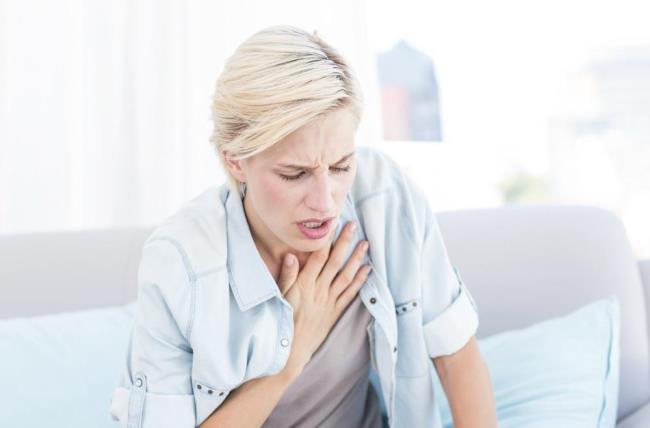7 Common Causes of Shortness of Breath

Shortness of breath, also called dyspnea, is an uncomfortable feeling that causes difficulty breathing and tightness in the chest. Shortness of breath can range from minor to severe and chronic. Dyspnea can have a variety of reasons, making it difficult to identify and treat this health problem.
Shortness of breath is a serious problem with 1 in 4 people suffering from it. Thorough medical evaluation and treatment can help deal with this issue and improve the quality of your life.
Learn more about the causes of breathing difficulties.
1. Asthma
Asthma is a widespread breathing disorder that makes your airways constrict and swell, causing excessive production of mucus. This can cause breathing difficulties, resulting in coughing, whistling sounds when you exhale, and shortness of breath.
For some people, asthma is just a mild problem. For others, it can be a severe issue that disrupts everyday activities and may result in a life-threatening asthma attack. Although asthma cannot be cured, its symptoms can be successfully managed.
2. Anxiety
Anxiety is a natural response of your body to fear. This is referred to as the fight-or-flight reaction. Your body reacts physically and mentally to prepare you to fight or run away. One of these reactions is shortness of breath. You may feel as if you can't catch your breath, chest tightening, and air hunger. If you experience anxiety-related shortness of breath, try to focus on your breathing to get it under control.
3. Pneumonia
Pneumonia is an infection that causes the air sacs in one or both lungs to become inflamed. The air sacs may become clogged with fluid or pus, resulting in cough, fever, chills, and shortness of breath. Different bacteria, viruses, and fungi can lead to the development of pneumonia. The severity of pneumonia can range from mild to life-threatening. For this reason, visit a doctor immediately if you suspect е you have pneumonia.
4. Allergic reactions
Allergy develops when your immune system produces antibodies as "protection" in response to allergens that come into contact with or enter your body. The immune system's reaction can cause sinus and airway inflammation, leading to shortness of breath. One form is allergic reaction is asthma, which is usually triggered by environmental triggers like dander, dust mites, cockroaches, mold, and pollen.
5. Anemia
When you're healthy, your heart, muscles, and organs receive enough oxygen from the blood. Low hemoglobin levels prevent oxygen from reaching the brain, causing the lungs to work harder in trying to take in more oxygen. This can result in serious breathing difficulties. Blood vessels swell, blood pressure lowers, and headaches, neurological problems, and vertigo might occur. Even a little decrease in hemoglobin might result in shortness of breath.
6. Heart failure
Shortness of breath is a common sign of heart failure in many people. You should keep an eye on your breathing and keep an eye on any major changes. Shortness of breath happens when blood in your body backs up in the arteries that return blood from the lungs to the heart as a result of poor heart function. As a result, fluid leaks into the lungs, causing congestion. If you have severe and persistent shortness of breath, you should seek emergency medical attention as soon as possible.
7. Hypotension
Hypotension is a medical condition also known as low blood pressure. It is usually caused by diseases affecting your heart and circulatory system. In hypotension, the blood flow to crucial organs is reduced. This often causes symptoms like lightheadedness or dizziness, but the shortness of breath also isn’t uncommon. Treating hypotension usually helps improve breathing and prevent episodes of breathing difficulties.
Post a comment